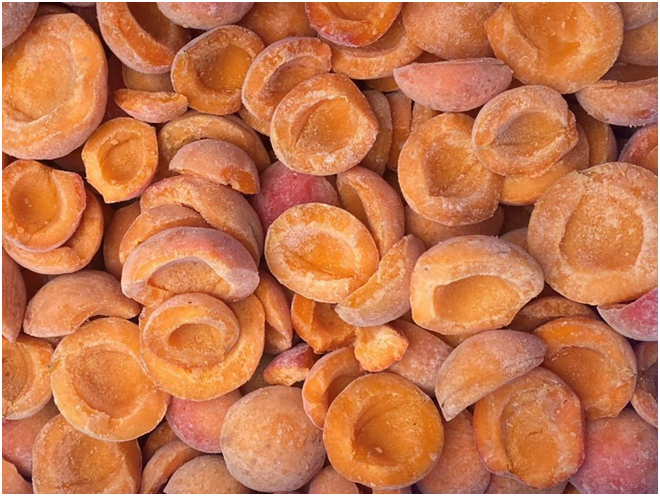EastFruit continues a series of reviews of the frozen fruit, berry, and vegetable market. The first analytical report was devoted to the harsh situation in the European frozen raspberry market and the ongoing price fall. The second one covered the fundamental changes in the freezing market due to the fall in consumer income, and the third market review is devoted to frozen apricots.
Frozen apricot sales in Europe increased in January 2023 compared to the end of 2022. This is evidenced by the revival of import transactions in the markets of Germany, Ukraine, Hungary, and Poland.
According to producers, they were quite busy in January 2023 and there was no expected market downfall. On the contrary, the market may have even been more active than usual in January of previous years.
Also, Moldova exported whole frozen apricots to the Czech Republic for the first time in January 2022. Previously, they weren’t in demand, and Moldova never had any deals on them. Whole apricots are 30-40% cheaper than halves of the same quality.
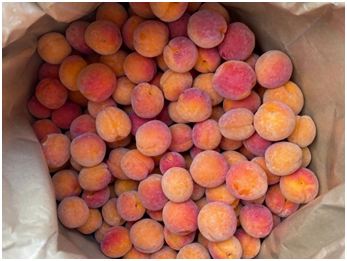
In Europe in 2021, the price for frozen pitted apricot halves (grade 1) reached 1.9-2.0 EUR/kg. Buyers paid about 1.4 EUR for apricot halves of grade 2.
Since the beginning of the 2022 season, the price of frozen apricots (hand-cut) in Europe has decreased and amounted to:
- 1.25-1.35 EUR/kg for grade 2
- 1.50-1.60 EUR/kg for grade 1
- 1.70-1.75 EUR/kg for grade 1 calibrated
Frozen apricot prices in Europe remained at the same level in January 2023. Therefore, apricots are considered a price-stable position for fruit freezing during the hard season for freezing enterprises.
The photos show examples of quality categories of frozen apricot halves:
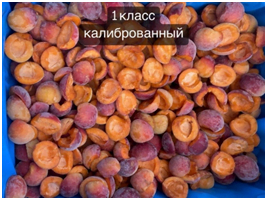
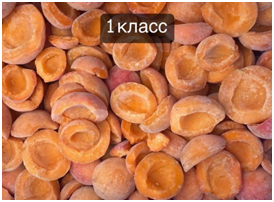
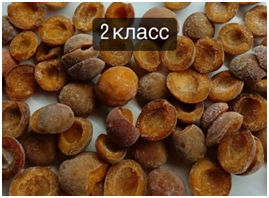
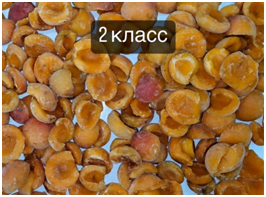
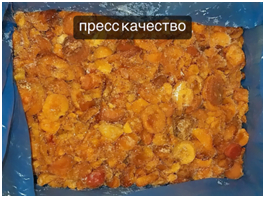
It can be concluded that there is no shortage of frozen apricots on the market. According to European traders, apricots were harvested and frozen in 2022 in Europe as planned. Producing countries such as Bulgaria and Serbia now have some stock left to fill the market before the season ends.
It is not the case in Ukraine. There was a good apricot harvest in Ukraine in 2022, but no one wanted to freeze apricots, preferring other crops. Many frozen fruit producers have focused on traditional high-margin berries such as raspberries and blueberries. Perhaps it was this factor that caused the shortage of frozen apricots on the Ukrainian market in January 2023, leading to the need to import.
Feeling hype, Ukrainian freezing enterprises and traders will likely pay attention to apricots in the 2023 season. It may lead to the harvesting of a higher volume of frozen apricot than a year ago, which will cause a larger supply on the market and, as a result, a possible price reduction.
Nevertheless, everything depends on weather and crop yields in the key producing countries.
It is interesting to see how actively the countries of Central Asia, which are now developing the production of frozen vegetables and fruits, will join the freezing of apricots. Uzbekistan is rapidly becoming a large exporter of frozen fruits and vegetables, but vegetables dominate the exports. The first enterprise for shock freezing of fruits and berries was also opened in Tajikistan and is already offering products for export.
The use of the site materials is free if there is a direct and open for search engines hyperlink to a specific publication of the East-Fruit.com website.




